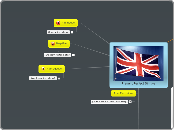
Present Perfect Simple
Affirmative
I have written a letter undefined
Negative
She hasn't written a letterundefined
Interrogative
Have they written a letter?undefined
Time Expresions
Just Ever Since Yet Never For Already


I have written a letter undefined
He escrito una carta.
She hasn't written a letterundefined
Ella no ha escrito una carta.
Have they written a letter?undefined
Short answers:Yes,I (You,We,You,They) haveNo, he (She,It) hasn't¿Han escrito una carta?SiNo
Just Ever Since Yet Never For Already
Solo, algunas veces, desde, aún, nunca, para, ya.Donde se sitúan:·Just, Already, Never and Ever: se escribe entre el auxiliar y el participio pasado.·For and since: Se escribe delante de las expresiones de tiempo y al final de la frase.·Yet: Sólo se escribe al final de la frase.
Exercise on Present Perfect Simplehave or has: I ___ answered the question. She ___ opened the window. They ___ called us. You ___ carried a box. It ___ rained a lot. We ___ washed the car. He ___ closed the window. Jenny ___ locked the door. The girls ___ visited the museum. John and Sophie ___ helped in the garden.Exercise on Present Perfect Simple: I (not / work) ______ today. We (buy)_____ a new lamp. We (not / plan)______ our holiday yet. Where (be / you)_____ ? He (write) _____five letters. She (not / see) _____him for a long time. (be / you)_____ at school? School (not / start) ____yet. (speak / he) _____to his boss? No, he (have / not)_____ the time yet.
El Preterito Perfecto Compuesto expresa una acción que esta todavía en curso o que se debutó hace poco, pero tiene una influencia en el presente.
Pone énfasis en el resultado·Ejemplo:Ha escrito cinco cartas.Acción que todavía continúa·Ejemplo: La escuela no ha empezado todavía.Acción que dejó recientemente ·Ejemplo: Se ha cocinado la cenaAcción terminado que tiene una influencia en la presente·Ejemplo: He perdido mi llave. Acción que ha tenido lugar una vez, nunca o varias veces antes de que el momento de hablar:·Ejemplo: Yo nunca he estado en Australia.
Para los verbos irregulares se utiliza el participio y para los verbos regulares hay que añadir "ed"